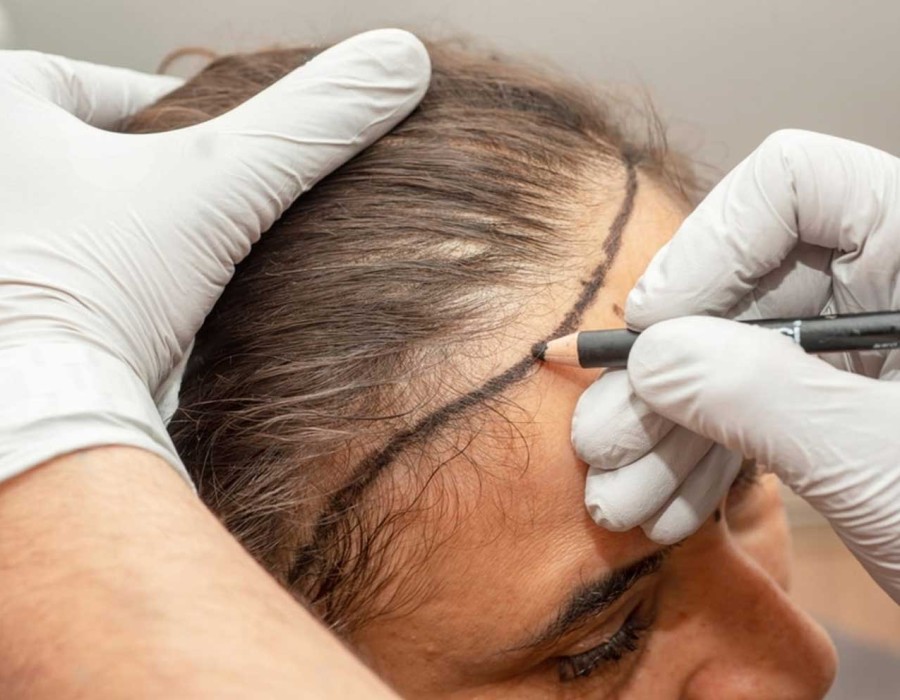The topic of hair transplants often raises questions among Muslims regarding their permissibility under Islamic law. Given the various teachings and interpretations within the religion, understanding the perspectives Is Hair Transplant Haram in Islam?. This article aims to clarify the various religious viewpoints, the reasons behind them, and the overall consensus among scholars.
The Nature of Hair Loss and Its Impact
Hair loss can be a distressing experience for many individuals, influencing their self-esteem and social interactions. Recognizing hair loss as a medical condition rather than a mere cosmetic concern is an essential consideration within the Islamic framework. The psychological effects and social implications of hair loss often lead individuals to seek solutions that enhance their appearance and overall well-being.
Scholarly Opinions on Hair Transplants
The discussions surrounding the permissibility of hair transplants draw on various Islamic scholars’ views. Most scholars tend to lean towards the acceptance of hair transplants, asserting that they can be permissible under specific conditions. The key argument in favor is that hair transplants restore a person’s appearance without altering the natural creation of Allah. This understanding emphasizes the intent behind the procedure and how it aligns with Islamic values.
Intent and Purpose
In Islam, the intention behind an action, known as niyyah, plays a crucial role in determining its permissibility. If the intention of undergoing a hair transplant is to improve mental health and restore lost confidence, many scholars argue that it can be considered halal (permissible). However, if the intent veers towards vanity and altering one’s natural appearance for the sake of pride, it may raise ethical concerns. The primary objective continually emphasized is the preservation of dignity and self-worth.
The Distinction Between Transplants and Extensions
It is important to distinguish between hair transplants and hair extensions, which are often confusing for many. Hair extensions involve adding synthetic or even other individuals’ hair to create the illusion of length and volume. This practice is generally viewed as haram (forbidden) in Islam, primarily due to the deception it could cause regarding one’s appearance. On the contrary, hair transplants utilize the patient’s own hair follicles, transferring them from one part of the body to another. This represents a restoration of what is natural rather than an artificial enhancement.
The Role of Medical Necessity
Medical necessity can be a decisive factor in discussions about hair transplants. Many scholars maintain that if a person experiences significant psychological distress due to hair loss, then hair transplant procedures may be justified45. This aligns with the higher principles of Islam, which promote the well-being of individuals. Seeking medical treatment for ailments is not only permissible but encouraged in Islam, reinforcing the idea that combating hair loss through transplantation can be a legitimate choice.
Debates Among Scholars
Despite a general consensus on the permissibility of hair transplants, debates persist within Islamic jurisprudence. Various religious authorities maintain differing views on the practice. Some scholars argue that any alteration of Allah’s creation, no matter how slight, could be regarded as haram. They emphasize the importance of accepting one’s natural appearance, as prescribed in several hadiths. Others highlight that hair restoration, when performed ethically and without harmful intentions, aligns with the purpose of aiding individuals to lead happier and healthier lives.
Cultural Considerations
Cultural perspectives on hair transplants also play a role in shaping opinions within the Muslim community. In some cultures, hair holds significant symbolic meaning, often associated with beauty and dignity. These cultural viewpoints may influence individual attitudes toward hair loss and the acceptability of surgical interventions1. Therefore, understanding both religious and cultural nuances is crucial in navigating the discussion about hair transplants.
Potential Ethical Concerns
When considering the road to hair restoration, it is vital to weigh potential ethical implications. For instance, the methods used in the transplantation process must adhere to Islamic teachings, avoiding any practices that may inflict harm or involve deception. Ethical surgical practices and transparency are essential to ensure that individuals are making informed decisions aligned with their faith.
Seeking Guidance from Trusted Scholars
Considering the complexities surrounding hair transplants, Muslims contemplating the procedure should seek counsel from knowledgeable and trusted religious authorities. Engaging with a scholar who can provide personalized guidance based on an individual’s situation can help clarify any ambiguities and offer insights into the particularities of their faith.
Conclusion on Understanding Hair Transplants in Islam
The question of whether hair transplants are haram in Islam does not have a straightforward answer. With the majority of scholars recognizing the medical and psychological benefits of hair transplants, the practice tends to be accepted under certain conditions, particularly when aligned with the intention of improving one’s mental well-being. The key lies in understanding the nuance of Islamic teachings surrounding intentions, natural appearance, and the restoration of dignity. Consequently, thorough consideration of personal circumstances, expert opinions, and cultural factors play a critical role in making an informed decision regarding hair transplants in the context of Islamic law. By addressing these perspectives, individuals can find a pathway that resonates with their beliefs while addressing their needs.





Comments